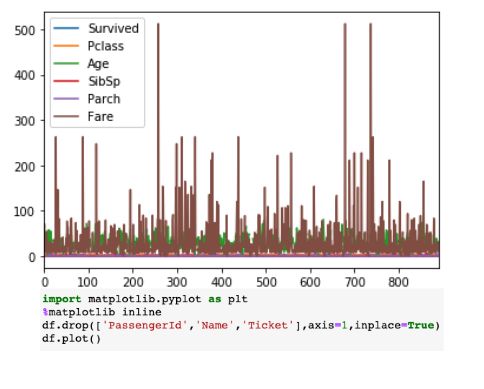- 全平台QQ聊天数据库解密项目常见问题解决方案
管旭韶
全平台QQ聊天数据库解密项目常见问题解决方案qq-win-db-keyQQNT/WindowsQQ聊天数据库解密项目地址:https://gitcode.com/gh_mirrors/qq/qq-win-db-key项目基础介绍本项目是一个开源项目,旨在为用户提供全平台QQ聊天数据库的解密方法。项目主要使用Python、JavaScript和C++等编程语言实现。新手常见问题及解决步骤问题一:如何
- 用鸿蒙打造真正的跨设备数据库:从零实现分布式存储
网罗开发
HarmonyOS实战源码实战harmonyos数据库分布式
网罗开发(小红书、快手、视频号同名) 大家好,我是展菲,目前在上市企业从事人工智能项目研发管理工作,平时热衷于分享各种编程领域的软硬技能知识以及前沿技术,包括iOS、前端、HarmonyOS、Java、Python等方向。在移动端开发、鸿蒙开发、物联网、嵌入式、云原生、开源等领域有深厚造诣。图书作者:《ESP32-C3物联网工程开发实战》图书作者:《SwiftUI入门,进阶与实战》超级个体:CO
- Python Day58
别勉.
python机器学习python信息可视化数据分析
Task:1.时序建模的流程2.时序任务经典单变量数据集3.ARIMA(p,d,q)模型实战4.SARIMA摘要图的理解5.处理不平稳的2种差分a.n阶差分—处理趋势b.季节性差分—处理季节性建立一个ARIMA模型,通常遵循以下步骤:数据可视化:观察原始时间序列图,判断是否存在趋势或季节性。平稳性检验:对原始序列进行ADF检验。如果p值>0.05,说明序列非平稳,需要进行差分。确定差分次数d:进行
- Python Day56
别勉.
python机器学习python开发语言
Task:1.假设检验基础知识a.原假设与备择假设b.P值、统计量、显著水平、置信区间2.白噪声a.白噪声的定义b.自相关性检验:ACF检验和Ljung-Box检验c.偏自相关性检验:PACF检验3.平稳性a.平稳性的定义b.单位根检验4.季节性检验a.ACF检验b.序列分解:趋势+季节性+残差记忆口诀:p越小,落在置信区间外,越拒绝原假设。1.假设检验基础知识a.原假设与备择假设原假设(Null
- Python Day57
别勉.
python机器学习python开发语言
Task:1.序列数据的处理:a.处理非平稳性:n阶差分b.处理季节性:季节性差分c.自回归性无需处理2.模型的选择a.AR§自回归模型:当前值受到过去p个值的影响b.MA(q)移动平均模型:当前值收到短期冲击的影响,且冲击影响随时间衰减c.ARMA(p,q)自回归滑动平均模型:同时存在自回归和冲击影响时间序列分析:ARIMA/SARIMA模型构建流程时间序列分析的核心目标是理解序列的过去行为,并
- Python Day44
别勉.
python机器学习python开发语言
Task:1.预训练的概念2.常见的分类预训练模型3.图像预训练模型的发展史4.预训练的策略5.预训练代码实战:resnet181.预训练的概念预训练(Pre-training)是指在大规模数据集上,先训练模型以学习通用的特征表示,然后将其用于特定任务的微调。这种方法可以显著提高模型在目标任务上的性能,减少训练时间和所需数据量。核心思想:在大规模、通用的数据(如ImageNet)上训练模型,学习丰
- Python Day42
别勉.
python机器学习python开发语言
Task:Grad-CAM与Hook函数1.回调函数2.lambda函数3.hook函数的模块钩子和张量钩子4.Grad-CAM的示例1.回调函数定义:回调函数是作为参数传入到其他函数中的函数,在特定事件发生时被调用。特点:便于扩展和自定义程序行为。常用于训练过程中的监控、日志记录、模型保存等场景。示例:defcallback_function():print("Epochcompleted!")
- OpenLayers 入门指南【一】:WebGIS基础与OpenLayers概述
凌往昔
OpenLayers入门指南WebGISOpenLayers
目录一、什么是WebGIS1.定义2.常用技术栈3.典型应用场景二、什么是OpenLayers1、核心功能特性2、对比Leaflet3、应用场景与发展趋势三、总结一、什么是WebGIS1.定义WebGIS(网络地理信息系统)是传统GIS在互联网领域的延伸,通过浏览器实现空间数据的发布、共享与交互。其核心在于将地理信息处理与Web技术结合,支持跨平台、分布式的地理数据访问2.常用技术栈前端框架:Op
- Python-什么是集合
難釋懷
python开发语言数据库
一、前言在Python中,除了我们常用的列表(list)、元组(tuple)和字典(dict),还有一种非常实用的数据结构——集合(set)。集合是一种无序且不重复的元素集合,常用于去重、交并差运算等场景。本文将带你全面了解Python中集合的基本用法、操作方法及其适用场景,并通过大量代码示例帮助你掌握这一重要数据类型。二、什么是集合(set)?✅定义:集合是Python中的一种可变数据类型,它存
- Python Day53
别勉.
python机器学习python开发语言
Task:1.对抗生成网络的思想:关注损失从何而来2.生成器、判别器3.nn.sequential容器:适合于按顺序运算的情况,简化前向传播写法4.leakyReLU介绍:避免relu的神经元失活现象1.对抗生成网络的思想:关注损失从何而来这是理解GANs的关键!传统的神经网络训练中,我们通常会直接定义一个损失函数(如均方误差MSE、交叉熵CE),然后通过反向传播来优化这个损失。这个损失的“来源”
- 〖Python零基础入门篇⑮〗- Python中的字典
哈哥撩编程
#①-零基础入门篇Python全栈白宝书python开发语言后端python中的字典
>【易编橙·终身成长社群,相遇已是上上签!】-点击跳转~<作者:哈哥撩编程(视频号同名)图书作者:程序员职场效能宝典博客专家:全国博客之星第四名超级个体:COC上海社区主理人特约讲师:谷歌亚马逊分享嘉宾科技博主:极星会首批签约作者文章目录⭐️什么是字典?⭐️字典的结构与创建方法⭐️字典支持的数据类型⭐️在列表与元组中如何定义字典
- php 输出pdf流文件,php使用tcpdf导出pdf文件
传兮留学Transit
php输出pdf流文件
需求:将页面中内容以pdf形式导出准备:TCPDF地址:https://tcpdf.org/思路:前端获取到要导出页面的html传递给后端,后端通过tcpdf来进行导出操作。前端代码如下://......//要导出的内容//......导出pdf//......functionexPdf(){varhtml=document.getElementById("pdf-content").innerH
- python换行输出字典_Python基础入门:字符串和字典
weixin_39959236
python换行输出字典
10、字符串常用转义字符转义字符描述\\反斜杠符号\'单引号\"双引号\n换行\t横向制表符(TAB)\r回车三引号允许一个字符串跨多行,字符串中可以包含换行符、制表符以及其他特殊字符para_str="""这是一个多行字符串的实例多行字符串可以使用制表符TAB(\t)。也可以使用换行符[\n]。"""print(para_str)#这是一个多行字符串的实例#多行字符串可以使用制表符#TAB()。
- Python----Python中的集合及其常用方法
redrose2100
Pythonpython开发语言后端
【原文链接】1集合的定义和特点(1)集合是用花括号括起来的,集合的特点是元素没有顺序,元素具有唯一性,不能重复>>>a={1,2,3,4}>>>type(a)>>>a={1,2,3,1,2,3}>>>a{1,2,3}2集合的常用运算(1)集合元素没有顺序,所以不能像列表和元组那样用下标取值>>>a={1,2,3}>>>a[0]Traceback(mostrecentcalllast):File""
- langchain+langserver+langfuse整合streamlit构建基础智能体中心
Messi^
人工智能-大模型应用langchain人工智能
ServerApi******#!/usr/bin/python--coding:UTF-8--importuvicornfromfastapiimportFastAPIfrombaseimportFaissEnginefromlangserve.serverimportadd_routesfromlangchain_core.promptsimportPromptTemplatefromlang
- pycharm两种运行py之路径问题
hellopbc
software#pycharmpythonpycahrmpath
文章目录pycharm两种运行py之路径问题pycharm两种运行py之路径问题运行python代码在pycharm中有两种方式:一种是直接鼠标点击runxxx运行,还有一种是使用#In[]:点击该行左边的绿色三角形按钮运行有可能在pythonconsole窗口运行有可能在你当前运行文件的窗口(就是run之后产生的那个窗口)**问题:**你会发现,涉及到路径问题时(使用相对路径),可能在这两种运行
- Python元组的遍历
難釋懷
python前端linux
一、前言在Python中,元组(tuple)是一种非常基础且常用的数据结构,它与列表类似,都是有序的序列,但不同的是,元组是不可变的(immutable),一旦创建就不能修改。虽然元组不能被修改,但它支持高效的遍历操作,非常适合用于存储不会变化的数据集合。本文将系统性地介绍Python中元组的多种遍历方式,包括基本遍历、索引访问、元素解包、结合函数等,并结合大量代码示例帮助你掌握这一重要技能。二、
- Python集合生成式
一、前言在Python中,我们已经熟悉了列表生成式(ListComprehension),它为我们提供了一种简洁高效的方式来创建列表。而除了列表之外,Python还支持一种类似的语法结构来创建集合——集合生成式(SetComprehension)。集合生成式不仅可以帮助我们快速构造一个无序且不重复的集合,还能有效提升代码的可读性和执行效率。本文将带你全面了解:✅什么是集合生成式✅集合生成式的语法结
- TypeScript简介
難釋懷
typescriptubuntujavascript
一、前言随着前端开发的快速发展,JavaScript已经成为构建现代Web应用的核心语言。然而,随着项目规模的增长,JavaScript在类型安全性、代码可维护性和团队协作方面逐渐显现出不足。为了解决这些问题,TypeScript应运而生。它不仅保留了JavaScript的灵活性,还引入了强大的静态类型系统和面向对象编程能力,极大地提升了大型项目的开发效率与稳定性。本文将带你全面了解TypeScr
- Python开发从新手到专家:第三章 列表、元组和集合
caifox菜狐狸
Python开发从新手到专家python元素集合列表元组数据结构字典
在Python开发的旅程中,数据结构是每一位开发者必须掌握的核心知识。它们是构建程序的基石,决定了代码的效率、可读性和可维护性。本章将深入探讨Python中的三种基本数据结构:列表、元组和集合。这三种数据结构在实际开发中有着广泛的应用,从简单的数据存储到复杂的算法实现,它们都扮演着不可或缺的角色。无论你是刚刚接触Python的新手,还是希望进一步提升编程技能的开发者,本章都将是你的宝贵指南。我们将
- python入门之字典
二十四桥_
python入门python
文章目录一、字典定义二、字典插入三、字典删除四、字典修改五、字典查找六、字典遍历七、字典拆包一、字典定义#{}键值对各个键值对之间用逗号隔开#1.有数据的字典dict1={'name':'zmz','age':20,'gender':'boy'}print(dict1)#2.创建空字典dict2={}print(dict2)dict3=dict()print(dict3)二、字典插入dict1={
- python类的定义与使用
菜鸟驿站2020
python
class01.py代码如下classTicket():#类的名称首字母大写#在类里定义的变量称为属性,第一个属性必须是selfdef__init__(self,checi,fstation,tstation,fdate,ftime,ttime,notes):self.checi=checiself.fstation=fstationself.tstation=tstationself.fdate
- Python爬虫设置代理IP
菜鸟驿站2020
python
配置代理ipfrombs4importBeautifulSoupimportrequestsimportrandom#从ip代理网站获取ip列表defget_ip_list(url,headers):web_data=requests.get(url,headers=headers)soup=BeautifulSoup(web_data.text,'lxml')ips=soup.find_all(
- Tensorflow 回归模型 FLASK + DOCKER 部署 至 Ubuntu 虚拟机
准备工作:安装虚拟机,安装ubuntu,安装python3.x、pip和对应版本的tensorflow和其他库文件,安装docker。注意事项:1.windows系统运行的模型文件不能直接运行到虚拟机上,需在虚拟机上重新运行并生成模型文件2.虚拟机网络状态改为桥接Flask代码如下:fromflaskimportFlask,request,jsonifyimportpickleimportnump
- 10个可以快速用Python进行数据分析的小技巧_python 通径分析
2401_86043917
python数据分析开发语言
df.iplot()df.iplot()vsdf.plot()右侧的可视
- 【Python多线程】
晟翰逸闻
Pythonpython
文章目录前言一、Python等待event.set二、pythonracecondition和lock使用使用锁(Lock)三.pythonDeadLock使用等综合运用总结前言这篇技术文章讨论了多线程编程中的几个重要概念。它首先介绍了等待事件的使用,并强调了避免使用“ForLoop&Sleep”进行等待的重要性。接着,文档解释了竞态条件,并提供了处理共享资源的建议,即在使用共享资源时进行加锁和解
- 【pycharm专业版】【如何远程配置Python解释器】【SSH】
资源存储库
pythonpycharm
Wejustlookedatconfiguringalocalinterpreter.Butwedon’talwayshavea“local”environment.Sometimes–andincreasinglyoften–ourenvironmentisoverthere.我们刚刚看了配置本地解释器。但我们并不总是有一个“本地”的环境。有时候–而且越来越多的时候–我们的环境就在那里。Let’
- python线程同步锁_python的Lock锁,线程同步
weixin_39649660
python线程同步锁
一、Lock锁凡是存在共享资源争抢的地方都可以使用锁,从而保证只有一个使用者可以完全使用这个资源一旦线程获得锁,其他试图获取锁的线程将被阻塞acquire(blocking=True,timeout=-1):默认阻塞,阻塞可以设置超时时间,非阻塞时,timeout禁止设置,成功获取锁,返回True,否则返回Falsereleas():释放锁,可以从任何线程调用释放,已上锁的锁,会被重置为unloc
- 并发与并行:python多线程详解
m_merlon
python服务器Python进阶教程python
简介多进程和多线程都可以执行多个任务,线程是进程的一部分。线程的特点是线程之间可以共享内存和变量,资源消耗少,缺点是线程之间的同步和加锁比较麻烦。在cpython中,截止到3.12为止依然存在全局解释器锁(GIL),不能发挥多核的优势,因此python多线程更适合IO密集型任务并发提高效率,CPU密集型任务推荐使用多进程并行解决。注:此说法仅适用于python(如:c++的多线程可以利用到多核并行
- python多线程:生产者与消费者,高级锁定Condition、queue队列使用案例与注意事项
网小鱼的学习笔记
Pythonpythonjava大数据
高级锁定这是python中的另一种中锁定,就像是它的名字一样是可以有条件的condition,首先程序使用acquire进入锁定状态,如果需要符合一定的条件才处理数据,此时可以调用wait,让自己进入睡眠状态,程序设计时候需要用notify通知其他线程,然后放弃锁定release此时其他再等待的线程因为受到通知notify,这时候被激活了,就开始运作。生产者与消费者的设计程序用producer方法
- java观察者模式
3213213333332132
java设计模式游戏观察者模式
观察者模式——顾名思义,就是一个对象观察另一个对象,当被观察的对象发生变化时,观察者也会跟着变化。
在日常中,我们配java环境变量时,设置一个JAVAHOME变量,这就是被观察者,使用了JAVAHOME变量的对象都是观察者,一旦JAVAHOME的路径改动,其他的也会跟着改动。
这样的例子很多,我想用小时候玩的老鹰捉小鸡游戏来简单的描绘观察者模式。
老鹰会变成观察者,母鸡和小鸡是
- TFS RESTful API 模拟上传测试
ronin47
TFS RESTful API 模拟上传测试。
细节参看这里:https://github.com/alibaba/nginx-tfs/blob/master/TFS_RESTful_API.markdown
模拟POST上传一个图片:
curl --data-binary @/opt/tfs.png http
- PHP常用设计模式单例, 工厂, 观察者, 责任链, 装饰, 策略,适配,桥接模式
dcj3sjt126com
设计模式PHP
// 多态, 在JAVA中是这样用的, 其实在PHP当中可以自然消除, 因为参数是动态的, 你传什么过来都可以, 不限制类型, 直接调用类的方法
abstract class Tiger {
public abstract function climb();
}
class XTiger extends Tiger {
public function climb()
- hibernate
171815164
Hibernate
main,save
Configuration conf =new Configuration().configure();
SessionFactory sf=conf.buildSessionFactory();
Session sess=sf.openSession();
Transaction tx=sess.beginTransaction();
News a=new
- Ant实例分析
g21121
ant
下面是一个Ant构建文件的实例,通过这个实例我们可以很清楚的理顺构建一个项目的顺序及依赖关系,从而编写出更加合理的构建文件。
下面是build.xml的代码:
<?xml version="1
- [简单]工作记录_接口返回405原因
53873039oycg
工作
最近调接口时候一直报错,错误信息是:
responseCode:405
responseMsg:Method Not Allowed
接口请求方式Post.
- 关于java.lang.ClassNotFoundException 和 java.lang.NoClassDefFoundError 的区别
程序员是怎么炼成的
真正完成类的加载工作是通过调用 defineClass来实现的;
而启动类的加载过程是通过调用 loadClass来实现的;
就是类加载器分为加载和定义
protected Class<?> findClass(String name) throws ClassNotFoundExcept
- JDBC学习笔记-JDBC详细的操作流程
aijuans
jdbc
所有的JDBC应用程序都具有下面的基本流程: 1、加载数据库驱动并建立到数据库的连接。 2、执行SQL语句。 3、处理结果。 4、从数据库断开连接释放资源。
下面我们就来仔细看一看每一个步骤:
其实按照上面所说每个阶段都可得单独拿出来写成一个独立的类方法文件。共别的应用来调用。
1、加载数据库驱动并建立到数据库的连接:
Html代码
St
- rome创建rss
antonyup_2006
tomcatcmsxmlstrutsOpera
引用
1.RSS标准
RSS标准比较混乱,主要有以下3个系列
RSS 0.9x / 2.0 : RSS技术诞生于1999年的网景公司(Netscape),其发布了一个0.9版本的规范。2001年,RSS技术标准的发展工作被Userland Software公司的戴夫 温那(Dave Winer)所接手。陆续发布了0.9x的系列版本。当W3C小组发布RSS 1.0后,Dave W
- html表格和表单基础
百合不是茶
html表格表单meta锚点
第一次用html来写东西,感觉压力山大,每次看见别人发的都是比较牛逼的 再看看自己什么都还不会,
html是一种标记语言,其实很简单都是固定的格式
_----------------------------------------表格和表单
表格是html的重要组成部分,表格用在body里面的
主要用法如下;
<table>
&
- ibatis如何传入完整的sql语句
bijian1013
javasqlibatis
ibatis如何传入完整的sql语句?进一步说,String str ="select * from test_table",我想把str传入ibatis中执行,是传递整条sql语句。
解决办法:
<
- 精通Oracle10编程SQL(14)开发动态SQL
bijian1013
oracle数据库plsql
/*
*开发动态SQL
*/
--使用EXECUTE IMMEDIATE处理DDL操作
CREATE OR REPLACE PROCEDURE drop_table(table_name varchar2)
is
sql_statement varchar2(100);
begin
sql_statement:='DROP TABLE '||table_name;
- 【Linux命令】Linux工作中常用命令
bit1129
linux命令
不断的总结工作中常用的Linux命令
1.查看端口被哪个进程占用
通过这个命令可以得到占用8085端口的进程号,然后通过ps -ef|grep 进程号得到进程的详细信息
netstat -anp | grep 8085
察看进程ID对应的进程占用的端口号
netstat -anp | grep 进程ID
&
- 优秀网站和文档收集
白糖_
网站
集成 Flex, Spring, Hibernate 构建应用程序
性能测试工具-JMeter
Hmtl5-IOCN网站
Oracle精简版教程网站
鸟哥的linux私房菜
Jetty中文文档
50个jquery必备代码片段
swfobject.js检测flash版本号工具
- angular.extend
boyitech
AngularJSangular.extendAngularJS API
angular.extend 复制src对象中的属性去dst对象中. 支持多个src对象. 如果你不想改变一个对象,你可以把dst设为空对象{}: var object = angular.extend({}, object1, object2). 注意: angular.extend不支持递归复制. 使用方法: angular.extend(dst, src); 参数:
- java-谷歌面试题-设计方便提取中数的数据结构
bylijinnan
java
网上找了一下这道题的解答,但都是提供思路,没有提供具体实现。其中使用大小堆这个思路看似简单,但实现起来要考虑很多。
以下分别用排序数组和大小堆来实现。
使用大小堆:
import java.util.Arrays;
public class MedianInHeap {
/**
* 题目:设计方便提取中数的数据结构
* 设计一个数据结构,其中包含两个函数,1.插
- ajaxFileUpload 针对 ie jquery 1.7+不能使用问题修复版本
Chen.H
ajaxFileUploadie6ie7ie8ie9
jQuery.extend({
handleError: function( s, xhr, status, e ) {
// If a local callback was specified, fire it
if ( s.error ) {
s.error.call( s.context || s, xhr, status, e );
}
- [机器人制造原则]机器人的电池和存储器必须可以替换
comsci
制造
机器人的身体随时随地可能被外来力量所破坏,但是如果机器人的存储器和电池可以更换,那么这个机器人的思维和记忆力就可以保存下来,即使身体受到伤害,在把存储器取下来安装到一个新的身体上之后,原有的性格和能力都可以继续维持.....
另外,如果一
- Oracle Multitable INSERT 的用法
daizj
oracle
转载Oracle笔记-Multitable INSERT 的用法
http://blog.chinaunix.net/uid-8504518-id-3310531.html
一、Insert基础用法
语法:
Insert Into 表名 (字段1,字段2,字段3...)
Values (值1,
- 专访黑客历史学家George Dyson
datamachine
on
20世纪最具威力的两项发明——核弹和计算机出自同一时代、同一群年青人。可是,与大名鼎鼎的曼哈顿计划(第二次世界大战中美国原子弹研究计划)相 比,计算机的起源显得默默无闻。出身计算机世家的历史学家George Dyson在其新书《图灵大教堂》(Turing’s Cathedral)中讲述了阿兰·图灵、约翰·冯·诺依曼等一帮子天才小子创造计算机及预见计算机未来
- 小学6年级英语单词背诵第一课
dcj3sjt126com
englishword
always 总是
rice 水稻,米饭
before 在...之前
live 生活,居住
usual 通常的
early 早的
begin 开始
month 月份
year 年
last 最后的
east 东方的
high 高的
far 远的
window 窗户
world 世界
than 比...更
- 在线IT教育和在线IT高端教育
dcj3sjt126com
教育
codecademy
http://www.codecademy.com codeschool
https://www.codeschool.com teamtreehouse
http://teamtreehouse.com lynda
http://www.lynda.com/ Coursera
https://www.coursera.
- Struts2 xml校验框架所定义的校验文件
蕃薯耀
Struts2 xml校验Struts2 xml校验框架Struts2校验
>>>>>>>>>>>>>>>>>>>>>>>>>>>>>>>>>>>>>>
蕃薯耀 2015年7月11日 15:54:59 星期六
http://fa
- mac下安装rar和unrar命令
hanqunfeng
mac
1.下载:http://www.rarlab.com/download.htm 选择
RAR 5.21 for Mac OS X 2.解压下载后的文件 tar -zxvf rarosx-5.2.1.tar 3.cd rar sudo install -c -o $USER unrar /bin #输入当前用户登录密码 sudo install -c -o $USER rar
- 三种将list转换为map的方法
jackyrong
list
在本文中,介绍三种将list转换为map的方法:
1) 传统方法
假设有某个类如下
class Movie {
private Integer rank;
private String description;
public Movie(Integer rank, String des
- 年轻程序员需要学习的5大经验
lampcy
工作PHP程序员
在过去的7年半时间里,我带过的软件实习生超过一打,也看到过数以百计的学生和毕业生的档案。我发现很多事情他们都需要学习。或许你会说,我说的不就是某种特定的技术、算法、数学,或者其他特定形式的知识吗?没错,这的确是需要学习的,但却并不是最重要的事情。他们需要学习的最重要的东西是“自我规范”。这些规范就是:尽可能地写出最简洁的代码;如果代码后期会因为改动而变得凌乱不堪就得重构;尽量删除没用的代码,并添加
- 评“女孩遭野蛮引产致终身不育 60万赔偿款1分未得”医腐深入骨髓
nannan408
先来看南方网的一则报道:
再正常不过的结婚、生子,对于29岁的郑畅来说,却是一个永远也无法实现的梦想。从2010年到2015年,从24岁到29岁,一张张新旧不一的诊断书记录了她病情的同时,也清晰地记下了她人生的悲哀。
粗暴手术让人发寒
2010年7月,在酒店做服务员的郑畅发现自己怀孕了,可男朋友却联系不上。在没有和家人商量的情况下,她决定堕胎。
12月5日,
- 使用jQuery为input输入框绑定回车键事件 VS 为a标签绑定click事件
Everyday都不同
jspinput回车键绑定clickenter
假设如题所示的事件为同一个,必须先把该js函数抽离出来,该函数定义了监听的处理:
function search() {
//监听函数略......
}
为input框绑定回车事件,当用户在文本框中输入搜索关键字时,按回车键,即可触发search():
//回车绑定
$(".search").keydown(fun
- EXT学习记录
tntxia
ext
1. 准备
(1) 官网:http://www.sencha.com/
里面有源代码和API文档下载。
EXT的域名已经从www.extjs.com改成了www.sencha.com ,但extjs这个域名会自动转到sencha上。
(2)帮助文档:
想要查看EXT的官方文档的话,可以去这里h
- mybatis3的mapper文件报Referenced file contains errors
xingguangsixian
mybatis
最近使用mybatis.3.1.0时无意中碰到一个问题:
The errors below were detected when validating the file "mybatis-3-mapper.dtd" via the file "account-mapper.xml". In most cases these errors can be d